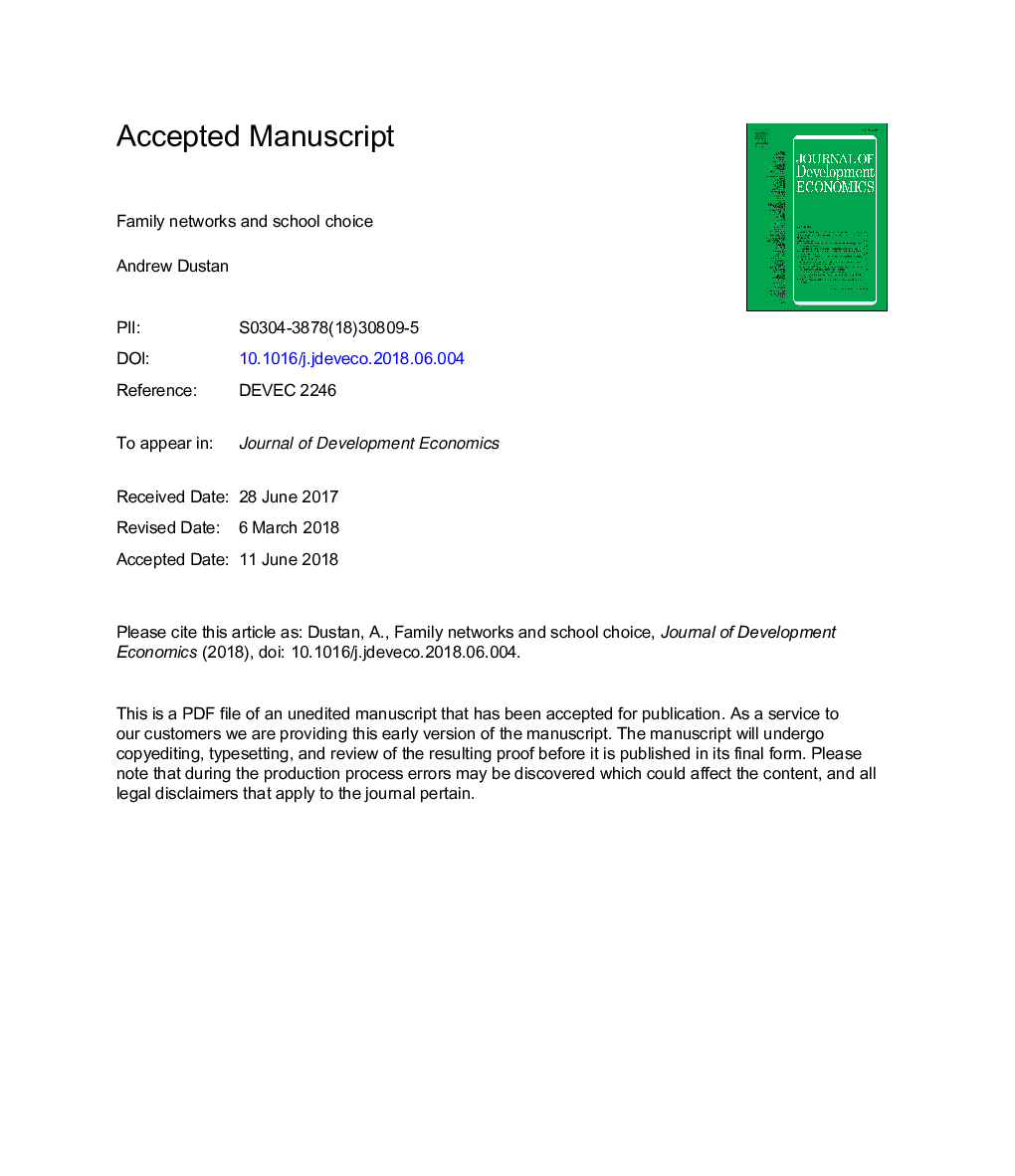| Article ID | Journal | Published Year | Pages | File Type |
|---|---|---|---|---|
| 7357598 | Journal of Development Economics | 2018 | 52 Pages |
Abstract
This paper uses variation in school assignments generated by Mexico City's public high school choice mechanism to document a strong causal influence of older siblings on their younger siblings' school choice behavior. The effects of older sibling admission on the probabilities of choosing both the sibling's school and distinct but observably similar schools are large and positive, even when siblings are too far apart in age to attend school together. The evidence is more consistent with information transmission and path dependence channels than cost, convenience, sibling competition, or parental pressure. Sibling-induced changes in stated preferences affect admissions outcomes, including assignment to elite schools. The results imply significant externalities from policies such as affirmative action that alter the distribution of school assignments, as well as providing insight into the role of family networks in decision-making regarding educational investments.
Related Topics
Social Sciences and Humanities
Economics, Econometrics and Finance
Economics and Econometrics
Authors
Andrew Dustan,
